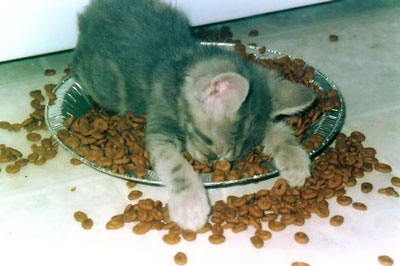XOOVA
Created an original blog “An Ounce of Prevention” for online health site Xoova.com.
A selection content can be seen below, full content can be found here
A selection content can be seen below, full content can be found here

PREVENT BEAR ATTACK
You may not count this as a necessary health risk, but you will if you find yourself in front of a bear. All you have to do is search images of bear attacks and the pictures will learn you.
First, don’t surprise a bear. Bears usually attack because they feel threatened. You probably don’t intend to do that, but in the event that you happen upon one... think of this…
- Talk quietly and try to detour away from the bear. Loud noises are before you encounter a bear.
- Don’t run you idiot. Back away slowly. But if even that agitates the bear, stop.
- Assume a non threatening posture by turning sideways or bending at the knees to appear small.
- Don’t make direct eye contact, bears interpret that as threatening.
- Drop something (NOT FOOD) to distract the bear.
- If a bear attacks and you have bear spray, use it!
- If the bear attacks and you DON’T have bear spray, protect your chest and abdomen by falling to the ground on your stomach, or assuming a fetal position to reduce the severity of the attack. Cover the back of your neck with your hands. STAY THERE until you are sure the bear has left.
- In rare cases the bear may be attacking at night or preying on you, try to escape. Use pepper spray, rocks, branches, whatever you can to let the bear know you’re not easy prey.
Hopefully you aren’t one of those people who leaves food out or puts it in their car instead of bear containers. You're asking for it.

BEDDY BYE TIME
Rodgers and Hammerstein left out a vital mention in their “My Favorite Things” lyrics, namely sleeping. Sleeping is one of my favorite things- I once received a bed as a birthday present.
So it stands to reason that lack of sleep, insomnia to be specific, is a least favorite thing. It's annoying to be under the covers, all snuggly and ready to go, when foreign language phrases or a terrible pop song run through your head on a loop. Very annoying.
Insomnia may occur from disrupting circadian rhythms, and is considered to be difficulty sleeping at night, waking too early in the morning, or waking too frequently throughout the night. The characteristics of insomnia are not feeling refreshed after sleep, inability to sleep though tired, daytime drowsiness and fatigue, and anxiety around bedtime. There are numerous possible causes, most often coffee, stress, alcohol, and anxiety are to blame. But most cases of insomnia don’t have an identifiable cause.
There are a few professional medical suggestions offered by the University of Maryland Medical Center to help combat and prevent insomnia.
To prevent insomnia from happening:
So it stands to reason that lack of sleep, insomnia to be specific, is a least favorite thing. It's annoying to be under the covers, all snuggly and ready to go, when foreign language phrases or a terrible pop song run through your head on a loop. Very annoying.
Insomnia may occur from disrupting circadian rhythms, and is considered to be difficulty sleeping at night, waking too early in the morning, or waking too frequently throughout the night. The characteristics of insomnia are not feeling refreshed after sleep, inability to sleep though tired, daytime drowsiness and fatigue, and anxiety around bedtime. There are numerous possible causes, most often coffee, stress, alcohol, and anxiety are to blame. But most cases of insomnia don’t have an identifiable cause.
There are a few professional medical suggestions offered by the University of Maryland Medical Center to help combat and prevent insomnia.
To prevent insomnia from happening:
- Avoid Caffeine and Nicotine (particularly after noon)
- Reduce stress with yoga, meditation, or deep relaxation
- Exercise regularly (before dinner and not too close to bedtime)
- Get regular exposure to late afternoon sun (stimulates melatonin to regulate those circadian rhythms)
To help treat insomnia:
- Eat carbs – A light snack of crackers or cereal before bed.
- Less fluids – Avoid before bedtime.
- No naps – Particularly in the evening.
- No television – Avoid just before bedtime.
- No time – Avoid looking at the clock to avoid further anxiety.
- Bathe – Take a hot bath too hours before bed.
- Cave like room – Keep your bedroom cool, quiet, dark, and well ventilated.
- Bedrooms are for sleeping – Avoid reading, watching television, or working in your bedroom.
- Keep consistent – Maintain regular sleeping and waking times.
- Don’t go to your room – If you can’t sleep, move to another dimly lit room if you can’t fall asleep.
If insomnia continues for long periods of time consider consulting a psychiatrist (you may have depression) or your physician.

SAY HELLO TO
MY LITTLE FRIEND
“Children show scars like medals. Lovers use them as secrets to reveal. A scar is what happens when the word is made flesh.” - Leonard Cohen
Ah, quite true Leonard. I have a collection of glory scars: the tire scar, 4th grade bike scar, 5th grade bike scar, the gravel scar, banana bread scar, van door scar, chicken pox scar. But amid the delightful character scars, there’s always those pedestrian “I had a mole removed, it’s not cancerous” scar and the “I was a teenager and didn’t think it would be bad if I picked at it” scar.
Scars form when the body produces extra collagen to close the wound. The collagen is usually thicker to heal the wound, and causes a scar. In order to lessen the scaring, take heed:
Ah, quite true Leonard. I have a collection of glory scars: the tire scar, 4th grade bike scar, 5th grade bike scar, the gravel scar, banana bread scar, van door scar, chicken pox scar. But amid the delightful character scars, there’s always those pedestrian “I had a mole removed, it’s not cancerous” scar and the “I was a teenager and didn’t think it would be bad if I picked at it” scar.
Scars form when the body produces extra collagen to close the wound. The collagen is usually thicker to heal the wound, and causes a scar. In order to lessen the scaring, take heed:
- Massage the area for 3 to 4 weeks after surgery. Massage four times a day for five minutes.
- Keep scar out of the sun. The sun will darken the scar.
- Keep pressure on the wound. Silicone Gel sheets (found at most drugstores) taped around the scar help decrease the chances of the scar thickening. This may even work for old scars.
- Topical gels with silicone may minimize the scar.
- Avoid using Hydrogen Peroxide or Vitamin E. Surprisingly these two kill new skin cells that begin to form and slows healing.
- Use a Band aid to cover up the wound. Leaving the wound open allows the wound to dry and a scab forms. Scabs impair healing. The wound should be covered and kept moist (with Neosporin initially and then Vaseline) until new skin grows.
- Old scars may be treated with laser surgery. The process can be expensive and require multiple treatments.
Consult your dermatologist for specific advice in treating your type of scars. For specific advice on treating emotional scars, contact a psychiatrist.

THE C WORD
I’m fairly familiar with it, but it can throw a serious wrench in a conversation. If it comes out, I’ll hear it and I wonder “Should I acknowledge this? Should I comment? People might act weird. Maybe I’ll let it pass so that things don’t get personal.”
Cancer. Breast Cancer specifically.
For me it’s personal, when I was 17 my mom passed away from breast cancer at age 42. So if cancer comes up, I wonder if I should include that bit of information. I’ve dealt with it and lived with it- I’m familiar. Even though I’m comfortable talking about cancer, I feel awkward bringing it up because of how people might react, or not react. It can be touchy. Nonetheless, perpetuating an open dialogue is positive because breast cancer is an important health concern, and since October is National Breast Cancer Awareness month, I thought I’d share some good news about cancer prevention that can be applied personally or shared with a friend.
The Strang Cancer Prevention site informs us that:
Cancer. Breast Cancer specifically.
For me it’s personal, when I was 17 my mom passed away from breast cancer at age 42. So if cancer comes up, I wonder if I should include that bit of information. I’ve dealt with it and lived with it- I’m familiar. Even though I’m comfortable talking about cancer, I feel awkward bringing it up because of how people might react, or not react. It can be touchy. Nonetheless, perpetuating an open dialogue is positive because breast cancer is an important health concern, and since October is National Breast Cancer Awareness month, I thought I’d share some good news about cancer prevention that can be applied personally or shared with a friend.
The Strang Cancer Prevention site informs us that:
- Early detection and treatment have lowered breast cancer death rates in North America, Western Europe, and Austrailia. In most developed countries, five-year survival rates now exceed 75 percent.
- Avoiding cancer-causing agents (including tobacco, some industrial products, and other dietary carcinogens) substantially cuts cancer risk.
- Screening for cancer of the breast, colon, prostate, cervix, and skin, among others, substantially reduces deaths from cancer.
- A healthy diet matters: Eating more vegetables and fruits, and fewer high-calorie, fatty foods (including meat) cuts a person’s cancer risk. Foods rich in fat, and animal protein, combined with low physical activity, raise risks for many cancers; in colon cancer, genetic factors influence fewer than five percent of all cases.
- Exercise works: Obesity and a sedentary lifestyle raise cancer risks – a preventable factor.
- Tobacco, diet, and untreated infections accounted for at least 40 percent of all new cases of cancer and deaths in 2000 – all potentially preventable factors.
One of the best bits of news is that there are numerous resources available. The National Breast Cancer Awareness Month site has multiple sites to consult, everything from informative articles about cancer to financial help if you have cancer. If you have been diagnosed with breast cancer or know someone who has, the Cancer 101 site has a great binder/planner prepared to keep important information and resources organized. ( Sections to keep a record of medical history and appointment results, questions to ask your doctor, recommended medical sites and national resources, American Cancer Society’s Breast Cancer Dictionary, and non medical advice from cancer survivors.)
And of course, your doctor is an ever valuable resource. Visit them for regular screenings and talk to them regarding your medical history and concerns for prevention.
NOBODY SAYS "I WANT TO BE A JUNKIE WHEN I GROW UP"
I’ve put this post off for two days. I’ve experimented with numerous approaches to address preventing alcohol abuse/ underage drinking.
I’d come up with all sorts of weak intros:
“It’s a funny thing drinking.”
“Movies with drunk people are funny. But being a drunk in real life is depressing.”
“I’ve been hearing a lot about Rehab these days.”
“So hey, um, did you know September is National Alcohol and Drug Recovery Month? Yeah, weird, right?”
Suddenly, I had a bad feeling. I’m going to be one of those people who has to read a pamphlet about talking to my kids about alcohol. This destroys my self concept. I don’t even have kids, I don’t even drink so I don’t have drinking habits to make me feel hypocritical, but I can’t broach the subject of drinking to anonymous readers, ergo I'm one of "those" parents. Inept and ineffectual.
Then I remembered, my dad used to say “Don’t do drugs” before I went out with friends. And while this might have been a bit of a household joke, it got said. I also recall my mom asking where I was going, what I was doing and who I would be with before I was permitted to go. Fairly simple. It’s helpful just to express expectations about alcohol and being informed about your child’s life.
Check out Alcohol Free Children or Talk to Kids About Alcohol for additional suggestions. Read the tips, and get a little help saying something to your kids. If you think you child has symptoms of alcohol use, you may consult a doctor for health concerns and screening. Sorry I don’t have tips on bungling or cumbersome interaction.
I’d come up with all sorts of weak intros:
“It’s a funny thing drinking.”
“Movies with drunk people are funny. But being a drunk in real life is depressing.”
“I’ve been hearing a lot about Rehab these days.”
“So hey, um, did you know September is National Alcohol and Drug Recovery Month? Yeah, weird, right?”
Suddenly, I had a bad feeling. I’m going to be one of those people who has to read a pamphlet about talking to my kids about alcohol. This destroys my self concept. I don’t even have kids, I don’t even drink so I don’t have drinking habits to make me feel hypocritical, but I can’t broach the subject of drinking to anonymous readers, ergo I'm one of "those" parents. Inept and ineffectual.
Then I remembered, my dad used to say “Don’t do drugs” before I went out with friends. And while this might have been a bit of a household joke, it got said. I also recall my mom asking where I was going, what I was doing and who I would be with before I was permitted to go. Fairly simple. It’s helpful just to express expectations about alcohol and being informed about your child’s life.
Check out Alcohol Free Children or Talk to Kids About Alcohol for additional suggestions. Read the tips, and get a little help saying something to your kids. If you think you child has symptoms of alcohol use, you may consult a doctor for health concerns and screening. Sorry I don’t have tips on bungling or cumbersome interaction.

ZZZZZZZZZZ
Have you ever had a bad breakup? One of those seriously bad, never ending, exhausting, sleep depriving break ups? You start to treat each other bad and things start to sour. You have long heated discussions into the night. Then you give it another shot. Then you have another fight. More long discussions into the night. Make up. Another epic fight. More discussions. Make up. These relationships are never fun, even for people who aren’t involved in the relationship. People like me, who hear you fighting and talking on the sidewalk right below my window. Until 4 am in the morning. Multiple nights in a row. Every other week.
Sleep deprivation is the downfall to the well-being of many. While the information resources on sleep have increased in the past 50 years, sleep knowledge has yet to benefit Americans who have sleep disorders. The National Commission on Sleep Disorders estimates 40 million Americans are chronically ill with various sleep disorders and an additional 20 to 30 million experience intermittent sleep-related problems.
In comparison to health basics like nutrition and physical fitness, sleep goes largely unnoticed. Still, the problem with sleep deprivation is the same with nutrition and physical fitness, the benefit comes from the implementing of knowledge. No amount of telling people that they should eat the apple instead of the donut, jog instead of watch television, or sleep at least seven hours a night, will help if we don’t do it.
Thankfully, researchers at Stanford University have established The Sleep Well, a website with extensive links and information on sleep medicine. Before heading straight to sleep aid medications, start by learning how to sleep. Suggestions range from the simple (Sleep only when sleepy), to the reasonable (Make sure your bedroom is quiet and comfortable), to the impossible (Don’t take naps). I’d like to add a suggestion based on my own research finding, earplugs.
If sleeplessness or sleep disorder symptoms are prevalent and persistent in your life, seek out a Sleep Specialist for assistance and diagnosis.
Sleep deprivation is the downfall to the well-being of many. While the information resources on sleep have increased in the past 50 years, sleep knowledge has yet to benefit Americans who have sleep disorders. The National Commission on Sleep Disorders estimates 40 million Americans are chronically ill with various sleep disorders and an additional 20 to 30 million experience intermittent sleep-related problems.
In comparison to health basics like nutrition and physical fitness, sleep goes largely unnoticed. Still, the problem with sleep deprivation is the same with nutrition and physical fitness, the benefit comes from the implementing of knowledge. No amount of telling people that they should eat the apple instead of the donut, jog instead of watch television, or sleep at least seven hours a night, will help if we don’t do it.
Thankfully, researchers at Stanford University have established The Sleep Well, a website with extensive links and information on sleep medicine. Before heading straight to sleep aid medications, start by learning how to sleep. Suggestions range from the simple (Sleep only when sleepy), to the reasonable (Make sure your bedroom is quiet and comfortable), to the impossible (Don’t take naps). I’d like to add a suggestion based on my own research finding, earplugs.
If sleeplessness or sleep disorder symptoms are prevalent and persistent in your life, seek out a Sleep Specialist for assistance and diagnosis.